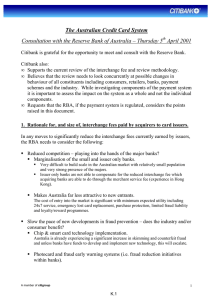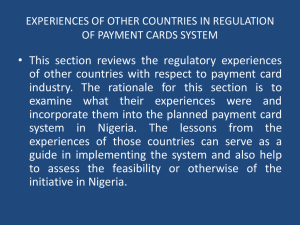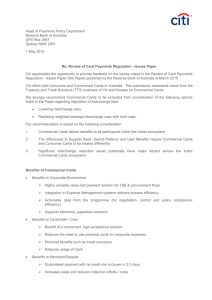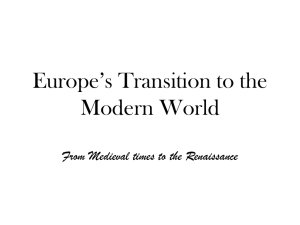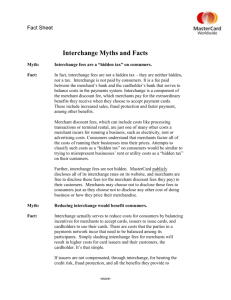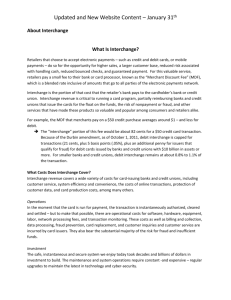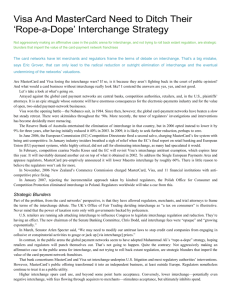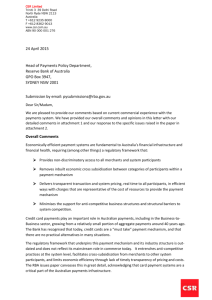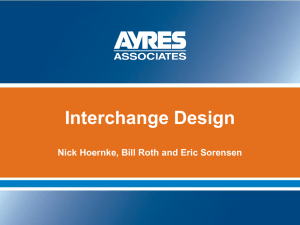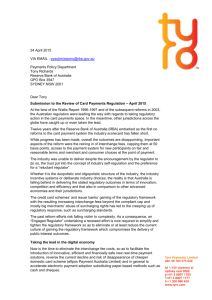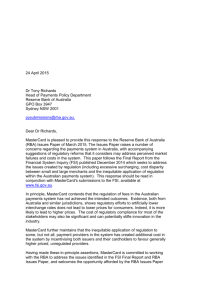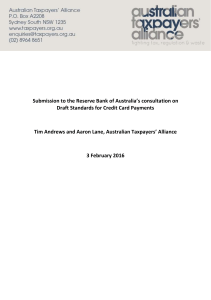Marianne Verdier`s presentation deck here.
advertisement
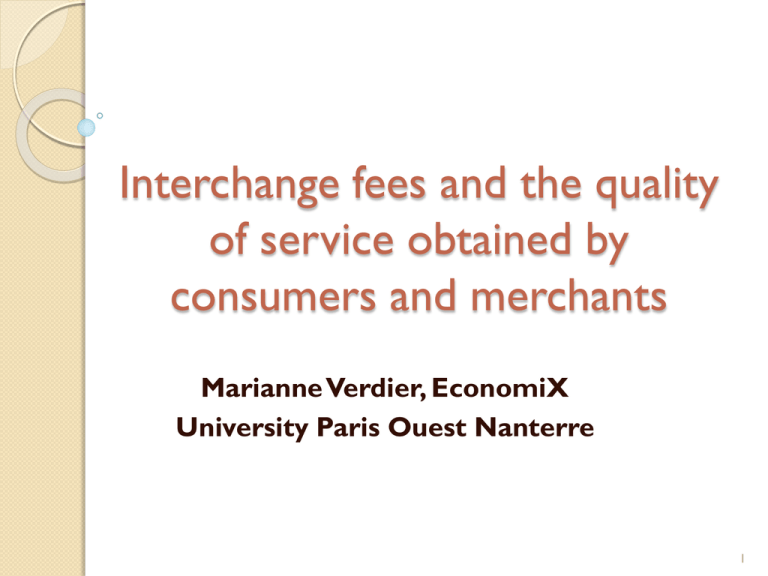
Interchange fees and the quality of service obtained by consumers and merchants Marianne Verdier, EconomiX University Paris Ouest Nanterre 1 Introduction General idea of this presentation: challenge the common view that the main impact of IF on consumers and merchants is a price impact IF are interbank transfers which impact: ◦ 1) The quality of service perceived by consumers and merchants ◦ 2) The costs of accepting payment instruments. 2 Common view: Interchange fees impact prices Payment system INTERCHANGE Issuing bank INTERCHANGE Acquiring bank LOWER PRICE? Consumers HIGHER PRICE? Merchants RETAIL PRICE? 3 Broader view: potential IF impact on consumers Price and fees Quality of service Other costs of using payment instruments • Price of current accounts • Price of payment transactions • Other fees? • Security and protection against fraud • Convenience (speed, acceptance, recordkeeping) • Costs of fraud losses 4 Broader view: potential IF impact on merchants Price • Merchant service fee including IF • Other fees for acceptance and equipment • chargebacks Quality of service For merchants • • • • Security Speed of processing/ network reliance Payment guarantee Customer satisfaction Costs of accepting payment instruments • • • • Costs of fraud losses Costs of investments Cost of accepting cash Cost of access to funds (float) 5 A challenge of the common view: Interchange fees impact prices Two main questions: 1) How are Interchange Fees passed through to consumers and merchants? 2) How do changes in IF revenues impact banks’ investment incentives? 6 IF and investment incentives Investment incentives Quality of service Price pass through Coordination between issuing banks and acquirers on investments Competition on banking retail markets 7 IF and Quality of Service (Verdier (2010)): If the issuers invest more… + high merchant benefit of quality Profit maximising Higher IF compared to IF without investment Examples Payment guarantee If the acquirers invest more... + high consumer benefit of quality Lower EMV standard UK 8 IF and the Costs of Accepting/Using Payment Instruments Interchange fees Tranaction volume Merchant investment Platform investment Liabiliaty regimes Allocation of fraud losses Fraud losses Bank investment 9 IF and the Costs of Accepting Payment Instruments The concern that IF impact the costs of fraud is present in the document issued by the Federal Reserve Board in the US. Creti and Verdier (2011) show that banks may react by increasing the level of liability borne by merchants if the regulator chooses a low level of IF. ◦ Higher share of fraud losses for merchants ◦ Lower investment incentives for the platform? 10 Conclusion IF may impact the quality of service obtained by consumers and merchants The quality of service obtained by consumers and merchants depend on banks’ investments Investments are particularly important ◦ To fight fraud in payment card payment systems ◦ To develop innovations (cf other presentations) 11 References Verdier (2010), International Journal of Industrial Organization: ◦ ‘Interchange Fees and Incentives to Invest in Quality of a Payment Card System’ Creti and Verdier (2011), Working Paper: ◦ ‘Fraud, Liability Regimes and Investments in Payment Platforms’ Verdier (2011), Journal of Economic Surveys, ◦ ‘Interchange Fees in Payment Card Systems: a Survey of the Literature’ 12
